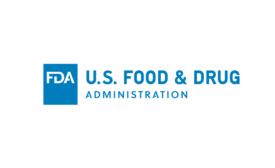Home » Keywords: » food safety program
Items Tagged with 'food safety program'
ARTICLES
FSQA continuous improvement programs play a pivotal role in elevating safety protocols, maintaining quality standards, and ensuring regulatory compliance
Read More
Regulatory Changes Impacting Your Food Safety Program, Part 2—What Should USDA's Priorities Be?
Your opinions on USDA's proposed Salmonella regulations and your priorities for your food safety programs in 2025.
February 14, 2025
Regulatory Changes Impacting Your Food Safety Program, Part 1—What Should FDA's Priorities Be?
We asked for your opinions on FDA's Human Foods Program and the food regulatory structure in the U.S.—and you answered
December 19, 2024
The Need for Ongoing Confirmation of Food Safety Programs Efficacy
Food businesses that do not confirm the efficacy of what they do to ensure the safety and quality of food are inevitably left at the mercy of repeating failures
October 15, 2024
Food Safety Insights: Food Safety Priorities—Getting ‘Back to Basics'
Pandemic disruptions prevented a greater focus on fundamental issues, to which processors are now returning
October 5, 2023
Top Food Safety Priorities—Where are We Post-Pandemic?
There is still evidence in the economy and in our food industry of a "hangover" from the pandemic that we have not yet fully cleared
August 8, 2023
Why SSOPs are the Foundation of a Well-Functioning Food Safety Program
Key Elements of Sanitation Standard Operating Procedures
August 17, 2021
FDA releases statement on new steps to strengthen food safety program for 2020 and beyond
The President's 2020 Budget includes new resources to advance the agency's food safety program, and expand food safety monitoring
March 20, 2019
Never miss the latest news and trends driving the food safety industry
eNewsletter | Website | eMagazine
JOIN TODAY!Copyright ©2025. All Rights Reserved BNP Media.
Design, CMS, Hosting & Web Development :: ePublishing












